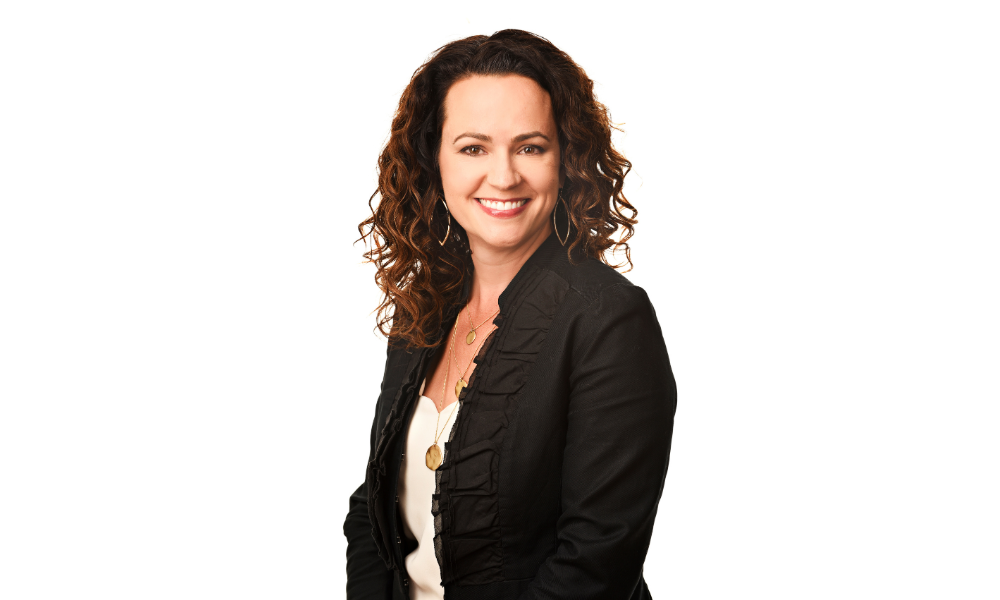In this economy, would-be homeowners need to scrutinize every expense

It’s no secret that home sales are down – a truth of which mortgage brokers are painfully aware. Rather atrophying on that reality, one broker takes a proactive approach in encouraging would-be homeowners and owners to pay off mortgagee quicker without fear of higher rates.
Rebecca Richardson (pictured), of UMortgage, takes a path of practicality, breaking down expenses those wishing to attain homeownership should consider cutting to reach their goal.
“Do you know how much $65 a month can get you in real estate?” she asked rhetorically. “An extra $10,000 in your max purchase price on average.”
It’s often said, she suggests, but it’s worth repeating: Debt will keep you from buying the home you want. “When you’re getting preapproved to buy a home, credit card payments factor into how much you’ll be approved to buy,” she reminds.
“So, if you’re not hearing the number you want when getting preapproved, it may be time to look at what extra payment you can cut from your budget,” she advises would-be homeowners.
It’s either a need or a want
It’s the difference between what’s needs-based and wants-based, Richardson said. The age-old tradition of keeping up with the Joneses is not conducive to such calculations, she explains to clients.
Take the cost of a car payment, for instance, which was $700 a month last year: “If you are qualifying to buy a house, that equates to about $100,000 in sales price. Now I’m not talking about if it’s needs-based like you need to have this car or this truck for work. But if it’s wants-based - if you can’t qualify for what you want to buy as far as buying a new home, you need to ask yourself, do you want a new car or do you want a new home?”
Richardson has distinguished herself among brokers with a prolific series of social media posts in which she dispenses advice with her “mortgage mentor” monicker. Increasingly, such posts are aimed at homeowners and those wishing to buy a home under a tough market weighed down by recession.
Homeowners can pay off their mortgages quicker
Just as she advises those aspiring to buy a home, she has extended her messaging to those who are already homeowners. Most recently, she said she’s advising people on how to pay off their mortgages faster while building equity quicker.
“If you’re buying a home and you have a 30-year mortgage, you should know there’s no reason you can’t pay your home off faster,” she said. “Your payment is really just a minimum payment, and in most cases, there aren’t any prepayment penalties.”
She outlined the advantages of this approach: “The advantage is if you have a financial hardship, you can always back down to the minimum payment,” she said. “Also, the required payment is lower on paper which can help you if you’re ever financing something in the future.”
In the interest of full disclosure, she outlines a disadvantage too: “The disadvantage is the rate is going to be a little bit higher than say a 15-year - typically about a quarter.”
Depending on market conditions, she explained, there may be only a 0.25% difference between a 15-year and a 30-year loan. In a market bogged down by inflation and higher interest rates, she adds, it could be as much as a 1% difference.
Another way of looking at it: “So if you want to pay off your home in 15 years, sometimes look at maybe getting a 30-year and giving yourself a little flexibility.”
She calls it “buying smart,” a tactic that has added premium in a tough economy. “Buying smart means looking beyond just the purchase of a new home, and instead factoring how you can successfully leverage the mortgage while building wealth through real estate,” she said. “Having options and flexibility can often be a wise choice to see doors open for future opportunities and long-term plans.”
Want to make your inbox flourish with mortgage-focused news content? Get exclusive interviews, breaking news, industry events in your inbox, and always be the first to know by subscribing to our FREE daily newsletter..



